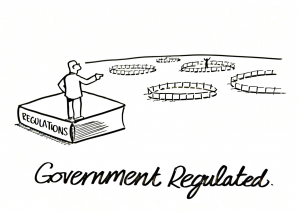GOV.UK Verify – the future of digital identity?
The UK government’s identity assurance scheme, which enables people to prove who they are online – GOV.UK Verify – goes live next month. At least 460,000 people have successfully registered using the system during the beta test period and they can now look forward to quicker and easier online form-filling on GOV.UK.
For the moment, Verify can only be used to register for access and then log in to certain central government websites, to do things like file a self-assessment tax return. The Government Digital Service (GDS) has announced that there will be around 50 services available in the next year.
But what about beyond that? How might the design decisions that have shaped the GOV.UK Verify service allow for the system to be used in the future? And how can organisations engage with GDS to jointly explore the opportunities that the system brings?
eIDAS: cross-border e-ID interoperability
The European Union is working towards establishing a digital single market. This will help businesses trade with consumers and other businesses that are located in other EU countries. As part of that, work has been underway for some time to pave the way for cross-border use of digital IDs. A citizen of one EU country will increasingly be able to use their digital ID issued by their home nation when they need to deal with another EU state government. The legislation to govern this, known as eIDAS, is already in place, though there is a phased implementation. From 28 September 2018, one member state with a ‘notified’ e-ID system will have to recognise the e-IDs issued by the other member states.
Extending UK Verify to the private sector
The eIDAS regulation says that European governments should encourage their private sector to adopt the standard so that they accept the digital identities of not just the country they operate in but also those of the other participating countries.
Examples of industries that depend on being able to verify the identity of those they do business with online include:
- Financial services
- Retail
- Telecoms
- Dating
- Gambling
- Adult content
- Legal
- The sharing economy (e.g. AirBnB, Gumtree, Uber)
- Employment
- Landlords
In a study conducted in 2015 involving companies from these sectors, the participants identified the following four models for how identity assurance could work:




In the current ‘Wild West’ model each individual business comes up with its own solution; there’s little coordination or cooperation.
In the ‘Industry Silo’ model, each industry such as banking comes up with its own scheme, but a bank-issued ID would be of no help in registering on a dating site, for example.
In the ‘Government Regulated’ model, the UK government would impose standards.
The last model – the one preferred by participants in the study – is that there would be one cross-industry digital identity scheme. This would be the best outcome for citizens as a single ID would provide access to potentially a great many online services.
Further information can be found in the OIX whitepaper, entitled “Discovering The Private Sector Needs For UK Identity Assurance” [this is the source of the images above].
Digital ID interoperability in local government and the NHS
Each of the UK’s 433 local authorities has, or will have, a need to enable its constituents to log in to online services, which can then be provided more effectively knowing for certain who the customer is. How the citizens register, have their identities verified and then log in to the services is currently up to each authority, but it surely makes sense to inter-operate with the national, central government scheme. The same applies to the National Health Service.
Work to explore how local government could benefit from the GOV.UK Verify scheme has been led by Warwickshire County Council in a white paper.
How could the UK Verify model apply to the crown dependencies?
Jersey, Guernsey and the Isle of Man are not part of the UK, nor are they EU member states. However, they are close to the UK and EU both geographically and in terms of trade. The islands have a need for a digital ID scheme(s) – both for their own citizens and for the clients of their financial services industries.
Will each island come up with its own solution? Will there be one scheme for locals, and one for financial services customers? Will the scheme(s) be inter-operable with the UK Verify and eIDAS? These questions are yet to be resolved.
Jersey is leading the way in researching the potential to apply the UK Verify concept on the Island, initially for Islanders as a means to deal more easily with the Jersey government online. A discovery project undertaken in conjunction with the Open Identity Exchange will report back on this in April, with the white paper available for public download from the OIX website.
Driving take-up and cost savings through digital ID
There is a financial imperative to adopt digital channels for providing government services. These services need to be made as effective as possible – they need to offer a frictionless experience to citizens in order to drive uptake. The processes should be digital end-to-end wherever possible, in order to drive out cost. Digital identities are key to achieving these objectives.
See GOV.UK Verify in action
The following video shows Janet Hughes describing how the UK Verify system is the beginning of a new marketplace for identity services in the UK:
Find out more about identity assurance
Businesses and government organisations that are interested in the future of identity assurance can join the Open Identity Exchange and participate in regular workshops, conferences and discovery projects. As one of the two representatives from the Jersey government attending these meetings, I have been privileged to be ‘in on the ground floor’ where I can glimpse into the future of what is shaping up to be one of the hottest new digital industries. Digital identities and the trust frameworks under which schemes are managed will evolve dramatically in the next five years.
If you have thoughts or questions about how this might impact the crown dependencies and their financial services industries then please leave a comment below. The key to advancing the agenda for digital ID across industries and borders is collaboration – we can do so much more if we work together, sharing our findings in the open.
Leave a Reply